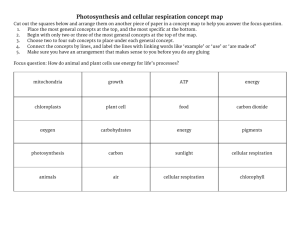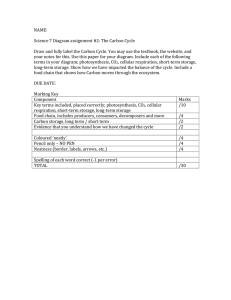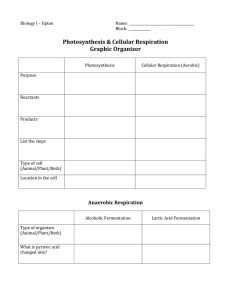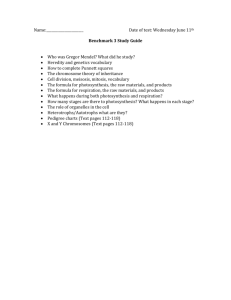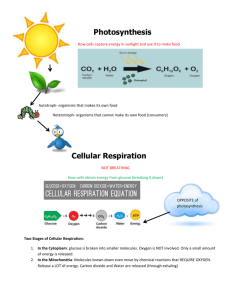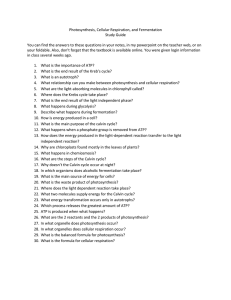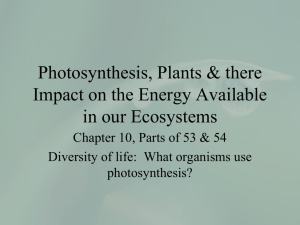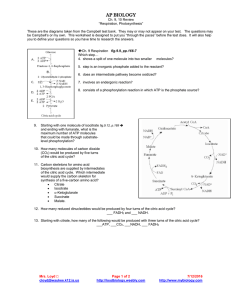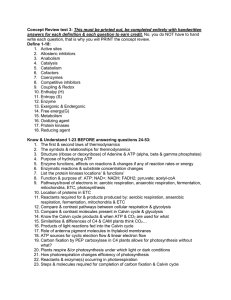Chapter 9 and 10 Review
advertisement
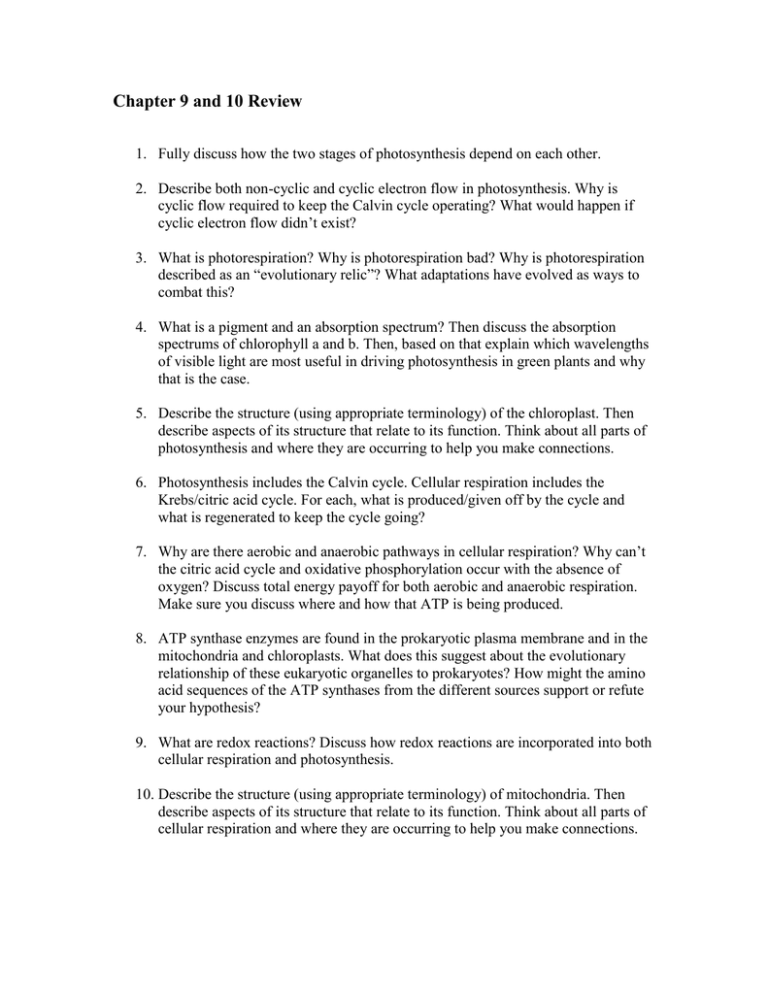
Chapter 9 and 10 Review 1. Fully discuss how the two stages of photosynthesis depend on each other. 2. Describe both non-cyclic and cyclic electron flow in photosynthesis. Why is cyclic flow required to keep the Calvin cycle operating? What would happen if cyclic electron flow didn’t exist? 3. What is photorespiration? Why is photorespiration bad? Why is photorespiration described as an “evolutionary relic”? What adaptations have evolved as ways to combat this? 4. What is a pigment and an absorption spectrum? Then discuss the absorption spectrums of chlorophyll a and b. Then, based on that explain which wavelengths of visible light are most useful in driving photosynthesis in green plants and why that is the case. 5. Describe the structure (using appropriate terminology) of the chloroplast. Then describe aspects of its structure that relate to its function. Think about all parts of photosynthesis and where they are occurring to help you make connections. 6. Photosynthesis includes the Calvin cycle. Cellular respiration includes the Krebs/citric acid cycle. For each, what is produced/given off by the cycle and what is regenerated to keep the cycle going? 7. Why are there aerobic and anaerobic pathways in cellular respiration? Why can’t the citric acid cycle and oxidative phosphorylation occur with the absence of oxygen? Discuss total energy payoff for both aerobic and anaerobic respiration. Make sure you discuss where and how that ATP is being produced. 8. ATP synthase enzymes are found in the prokaryotic plasma membrane and in the mitochondria and chloroplasts. What does this suggest about the evolutionary relationship of these eukaryotic organelles to prokaryotes? How might the amino acid sequences of the ATP synthases from the different sources support or refute your hypothesis? 9. What are redox reactions? Discuss how redox reactions are incorporated into both cellular respiration and photosynthesis. 10. Describe the structure (using appropriate terminology) of mitochondria. Then describe aspects of its structure that relate to its function. Think about all parts of cellular respiration and where they are occurring to help you make connections.
